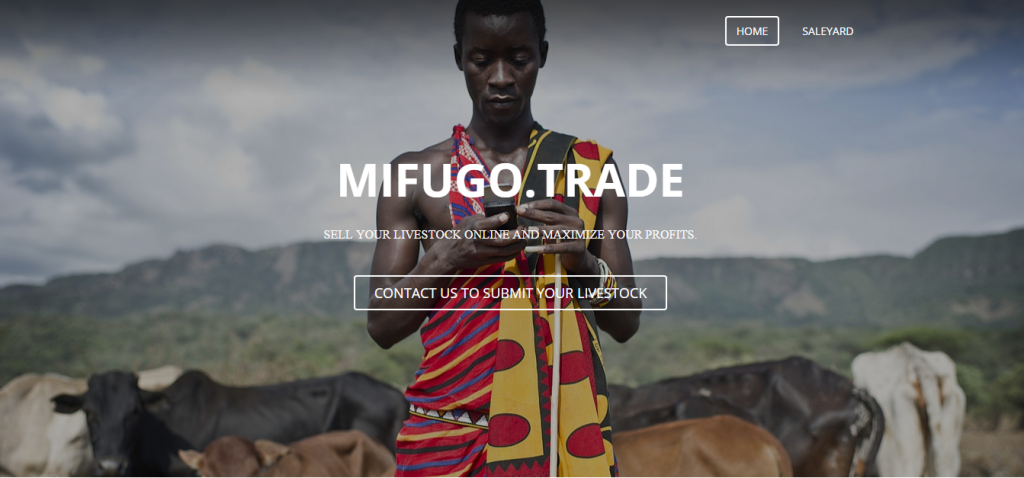The use of technology in Africa’s agricultural sector – to improve access to information, increase efficiencies, and grow output and profits – is gaining traction continent-wide. This trend is particularly visible in Kenya, where local startups are implementing tech – and often mobile-based – solutions to support the country’s smallholder farmers, and fuel the agricultural sector. Here Disrupt Africa introduces five of our favourite African e-farming startups.
FarmDrive
Kenyan startup FarmDrive provides a simple digital record-keeping platform that enables smallholder farmers to keep track of their farming activities using a mobile phone. The farmers’ data combined with existing agricultural data is used to develop a comprehensive credit profile, to be used for the farmers’ credit assessment by financial institutions when they need funding.
The result is that FarmDrive stimulates financial institutions to lend more to smallholder farmers, by de-risking the process through showing clear and transparent records and allowing the institutions to create products better catered to smallholder farmers.
In addition, FarmDrive also uses the records to understand each farmer’s specific needs and provide tailored information via SMS. This enables farmers to gain valuable insight into their farming operations, and maximize potential of their farms.
Launched in 2014 by two tech ladies Peris Bosire and Rita Kimani, FarmDrive is currently being tested by a trial group of 50 farmers in Kenya, to be scaled to 3,000 by the end of 2015; by which point enough credible data will also have been collected to enable the first batch of farmers to secure loans from partner financial institutions.
Mifugo.trade
Kenya’s Mifugo.trade platform is an online livestock exchange that directly connects livestock producers and buyers. The startup uses a network of trained assessing agents equipped with smartphones, who visit livestock sellers, evaluate animals, and upload relevant information on an animal sale to the platform. Buyers can then bid for animals online.
According to founder Taylor Tully, bringing the world of livestock trading into the digital space benefits traders by increasing access to information and services, increases income for sellers, but also by connecting rural and urban players working in the same industry. It also helps to cut out middlemen, who drive up transaction costs.
Mifugo.trade is currently raising US$100,000 to build out the platform, adding new functionality and improving the interface; as well as providing the funds to fuel expansion across Kenya.
WeFarm
Also from Kenya, social enterprise WeFarm has developed a peer-to-peer (P2P) knowledge sharing platform for small-scale farmers in rural communities, which allows farmers to ask questions via SMS shortcodes and receive answers from other registered users.
The platform is open to anyone, including experts and those wishing to do business with farmers, and is available in both English and Swahili. It is approaching 50,000 questions asked on the platform, with 60 per cent of its users active monthly.
Launched in November last year, WeFarm has already hit 22,000 users, and is planning on more than doubling its user base by the end of the year, and targeting more than 500,000 active farmers by the end of 2016.
SokoNect
Kenyan startup SokoNect has developed an agribusiness tool that provides small scale farmers with a platform to sell their products from home using their mobile phones.
The platform links smallholder farmers to buyers of livestock, agricultural and horticultural products within their locality, cutting out farmers’ reliance on middlemen who traditionally take a sizeable portion of sale proceeds.
The solution also provides market news, details of markets times and locations within the area, and enables farmers to query current market prices.
In December last year, SokoNect emerged a winner of Nairobi-based m:lab East Africa’s Mobile Impact Ventures Programme Demo Day, securing US$5,000 cash investment.
mPedigree
While Kenyan startups may be leading the e-farming trend, entrepreneurs across Africa are disrupting the agricultural space with technology.
Ghanaian startup mPedigree is best known for its mobile pharmaceutical anti-counterfeiting solution.
However, the startup recently partnered with the Uganda National Bureau of Standards (UNBS), Feed the Future Uganda Agricultural Inputs Activity – an initiative of the United States Agency for International Development (USAID)-run project Feed the Future -, and Ugandan corporation RenPublishing, to roll out a mobile phone-powered traceability and e-verification service for agricultural inputs and commodities.
The initiative brings together the E-Tags quality certification and auditing service of the UNBS and mPedigree’s Goldkeys serialisation and authentication engine to create a channel for verifying the source and supply chain status of agro-inputs as well as their conformance with acceptable quality standards under Ugandan law and regulations.
Phase one is set for completion next year, paving the way for successive, nationwide, phases covering a broader set of private sector agro-input manufacturers, providers and distributors. The system is being launched at a time when estimates put the prevalence of fake seeds in Uganda at between 30 per cent and 40 per cent of total local supply.
The company said the e-verification service aims over its lifecycle to empower five million farmers and, at the peak of the rollout, generate more than US$1 billion in aggregate value per year.


